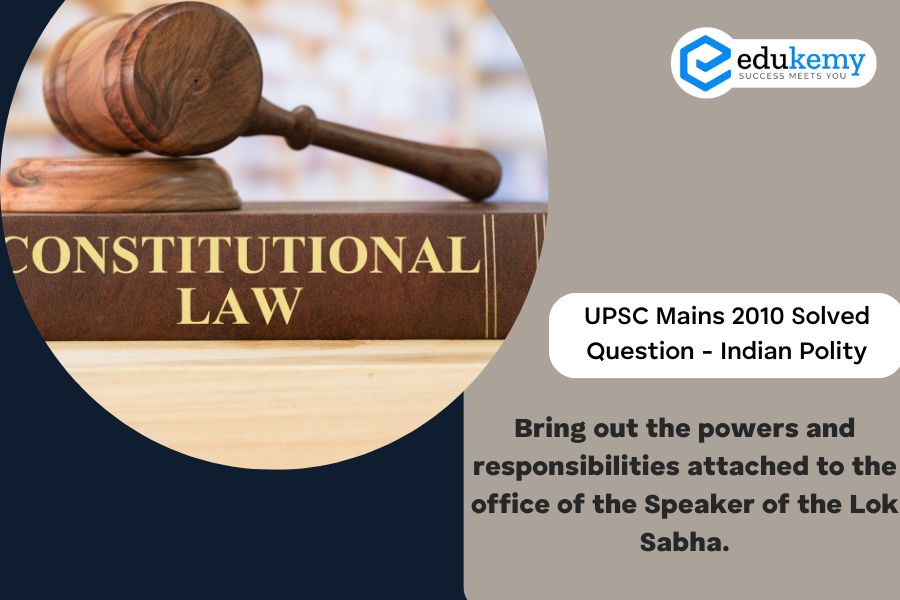
The Lok Sabha Speaker holds the position of presiding officer. The Speaker remains in office until the Lok Sabha’s tenure concludes but can be removed earlier in any of the following three cases:
- Ceasing to be a member of the Lok Sabha.
- Resignation submitted in writing, passed by a majority of all Lok Sabha members, after a 14-day notice.
- If the Deputy Speaker assumes the role.
The Speaker serves as the guardian of the powers and privileges of the House and its communities. Derived from the Constitution of India, the Speaker’s powers are outlined in the Rules of Procedure and Conduct of Business of Lok Sabha and parliamentary conventions.
The Speaker’s powers can be summarized as follows:
- Maintaining order and decorum during House proceedings.
- Interpreting the provisions of the Constitution of India, the Rules of Procedure and Conduct of Business of the Lok Sabha, and parliamentary precedents.
- Suspending or adjourning the House in the absence of a quorum.
- Exercising voting power in case of a deadlock.
- Presiding over joint sittings summoned by the President.
- Certifying a Bill as a Money Bill.
- Serving as the Ex-officio Chairman of the Indian Parliamentary group of the Inter-Parliament Union.
- Appointing the Chairman of all Lok Sabha Parliamentary Committees and supervising their functioning.
The Speaker must execute these powers with responsibility, impartiality, and independence.

Contents
In case you still have your doubts, contact us on 9811333901.
For UPSC Prelims Resources, Click here
For Daily Updates and Study Material:
Join our Telegram Channel – Edukemy for IAS
- 1. Learn through Videos – here
- 2. Be Exam Ready by Practicing Daily MCQs – here
- 3. Daily Newsletter – Get all your Current Affairs Covered – here
- 4. Mains Answer Writing Practice – here

